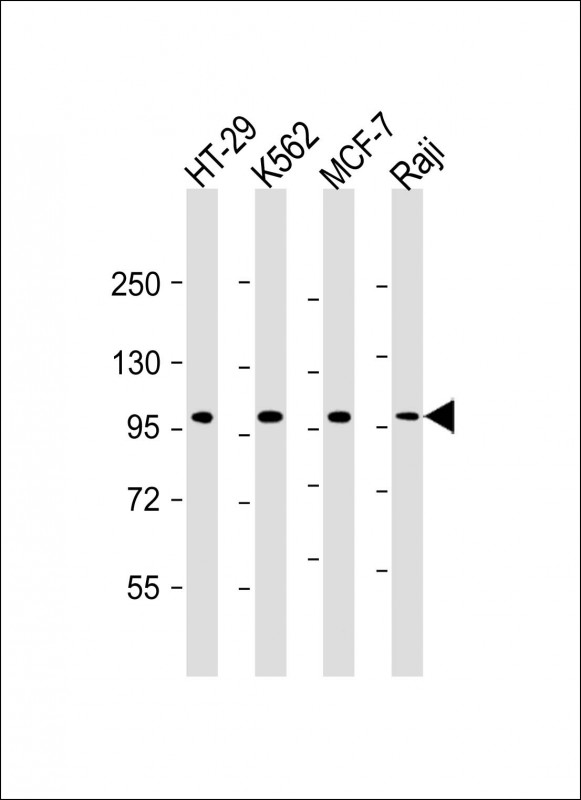
| WB | 1/2000 | Human,Mouse,Rat |
| IF | 咨询技术 | Human,Mouse,Rat |
| IHC | 咨询技术 | Human,Mouse,Rat |
| ICC | 技术咨询 | Human,Mouse,Rat |
| FCM | 咨询技术 | Human,Mouse,Rat |
| Elisa | 咨询技术 | Human,Mouse,Rat |
| Aliases | Targeting protein for Xklp2, Differentially expressed in cancerous and non-cancerous lung cells 2, DIL-2, Hepatocellular carcinoma-associated antigen 519, Hepatocellular carcinoma-associated antigen 90, Protein fls353, Restricted expression proliferation-associated protein 100, p100, TPX2, C20orf1, C20orf2, DIL2, HCA519 |
| Entrez GeneID | 22974 |
| WB Predicted band size | 85.7kDa |
| Host/Isotype | Mouse IgG1 |
| Antibody Type | Primary antibody |
| Storage | Store at 4°C short term. Aliquot and store at -20°C long term. Avoid freeze/thaw cycles. |
| Species Reactivity | Human |
| Immunogen | This TPX2 antibody is generated from a mouse immunized with a recombinant protein between 1-531 amino acids from the human TPX2. |
+ +
以下是关于TPX2抗体的3篇参考文献及其摘要概括:
---
1. **"TPX2 overexpression promotes proliferation and migration of hepatocellular carcinoma cells"**
- **作者**: Li Y, et al.
- **摘要**: 研究通过免疫组化(使用TPX2抗体)发现,TPX2在肝癌组织中高表达,与肿瘤分期和转移显著相关。体外实验表明,抑制TPX2可降低肝癌细胞增殖和迁移能力,提示其作为潜在治疗靶点。
2. **"TPX2 as a prognostic biomarker in breast cancer: An immunohistochemical study"**
- **作者**: Wang H, et al.
- **摘要**: 利用TPX2抗体对乳腺癌组织样本进行检测,发现TPX2高表达与患者生存率低和化疗耐药相关。机制研究表明TPX2通过调控Aurora A激酶活性促进肿瘤进展。
3. **"Functional analysis of TPX2 in mitotic spindle assembly using RNAi and antibody-based approaches"**
- **作者**: Gruss OJ, et al.
- **摘要**: 结合TPX2抗体(Western blot和免疫荧光)与RNA干扰技术,证实TPX2对有丝分裂纺锤体形成至关重要,并揭示其与Importin蛋白的相互作用机制。
---
以上文献均涉及TPX2抗体在癌症机制或分子功能研究中的应用,涵盖临床样本分析和基础分子生物学实验。如需具体期刊或年份信息,可进一步补充检索。
×